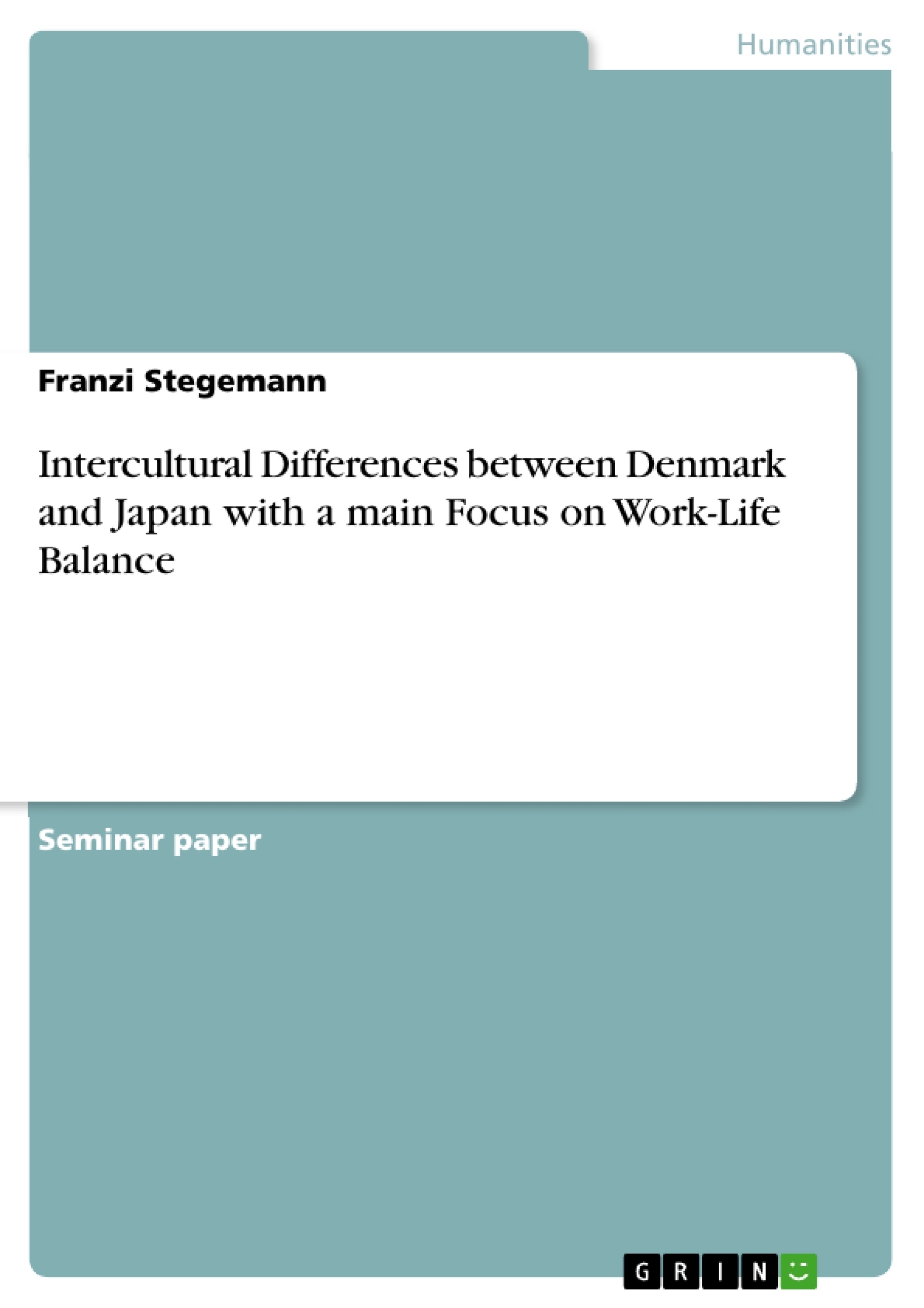This term paper examines the Work-Life Balance in Denmark vs. Japan. According to you Hofstede's Dimensions the two countries are compared with a main focus on the dimensions Power Distance, Individualism, Masculinity and Uncertainty Avoidance.
After a theoretical introduction to Hofstede’s intercultural dimensions, I will apply some of them specifically to the two countries and highlight the differences and similarities. Followed by a brief explanation of the often used term Work-Life balance. The second part, I will elaborate further on the topic of Work-Life balance in relation to culture and, additionally, take up trends and developments to be expected in the near future. I will end this paper with a summary of the general results and findings.
Table of Contents
- Introduction
- Understanding the intercultural differences between Denmark and Japan through Hofstede
- The Six Dimensions of Hofstede
- Power Distance
- Individualism
- Masculinity
- Uncertainty Avoidance
- Long Term Orientation
- Indulgence
- Hofstede's Intercultural Model applied to Denmark and Japan
- Power Distance: Denmark versus Japan
- Individualism: Denmark versus Japan
- Masculinity: Denmark versus Japan
- Uncertainty Avoidance: Denmark versus Japan
- Definition of Work-Life Balance
- The Six Dimensions of Hofstede
- Trends and Developments in Work-Life Balance in Denmark and Japan
- Work-Life Balance in Denmark
- Work-Life Balance in Japan
- Conclusion
Objectives and Key Themes
This paper aims to explore the intercultural differences between Denmark and Japan, focusing on their respective approaches to work-life balance. Using Hofstede's 6-D model, the paper analyzes the cultural dimensions that shape these differences, highlighting similarities and contrasting aspects.
- Intercultural differences between Denmark and Japan
- Hofstede's cultural dimensions
- Work-life balance in Denmark and Japan
- Trends and developments in work-life balance
- Impact of culture on work-life balance
Chapter Summaries
- Introduction: This chapter introduces the concept of work-life balance through the contrasting idioms "Hygge" and "Karōshi," representing the Danish and Japanese cultures, respectively. It highlights the stark differences in work-life balance approaches between the two nations, setting the stage for the subsequent analysis.
- Understanding the intercultural differences between Denmark and Japan through Hofstede: This chapter provides an overview of Hofstede's Intercultural Model, explaining its six dimensions: power distance, individualism, masculinity, uncertainty avoidance, long-term orientation, and indulgence. It then introduces the selected dimensions relevant to the comparison between Denmark and Japan.
- Trends and Developments in Work-Life Balance in Denmark and Japan: This chapter delves into the specific context of work-life balance in Denmark and Japan. It examines the trends and developments observed in both countries, exploring the factors that influence work-life balance practices and the challenges and opportunities they face.
Keywords
This paper explores the concepts of intercultural differences, work-life balance, Hofstede's cultural dimensions, Denmark, Japan, "Hygge," and "Karōshi." It examines the role of culture in shaping work-life balance practices and identifies the key factors driving trends and developments in this area.
Frequently Asked Questions
What are the main cultural differences between Denmark and Japan regarding work?
The differences are highlighted by the concepts of "Hygge" (comfort/balance) in Denmark and "Karōshi" (death from overwork) in Japan.
Which of Hofstede's dimensions are used for the comparison?
The analysis focuses on Power Distance, Individualism, Masculinity, and Uncertainty Avoidance.
How does Power Distance differ between these two countries?
Denmark typically shows a very low power distance (flat hierarchies), while Japan has a higher power distance with more emphasis on hierarchy and seniority.
What is the significance of the "Masculinity" dimension in this context?
Japan scores high on masculinity (competitive, success-driven), whereas Denmark is considered a feminine society (caring, quality of life), which directly impacts their work-life balance.
What are the future trends for work-life balance in Japan?
The paper discusses developments intended to reduce overwork and address the challenges of the traditional Japanese work culture.
- Citar trabajo
- Franzi Stegemann (Autor), 2020, Intercultural Differences between Denmark and Japan with a main Focus on Work-Life Balance, Múnich, GRIN Verlag, https://www.grin.com/document/537849



